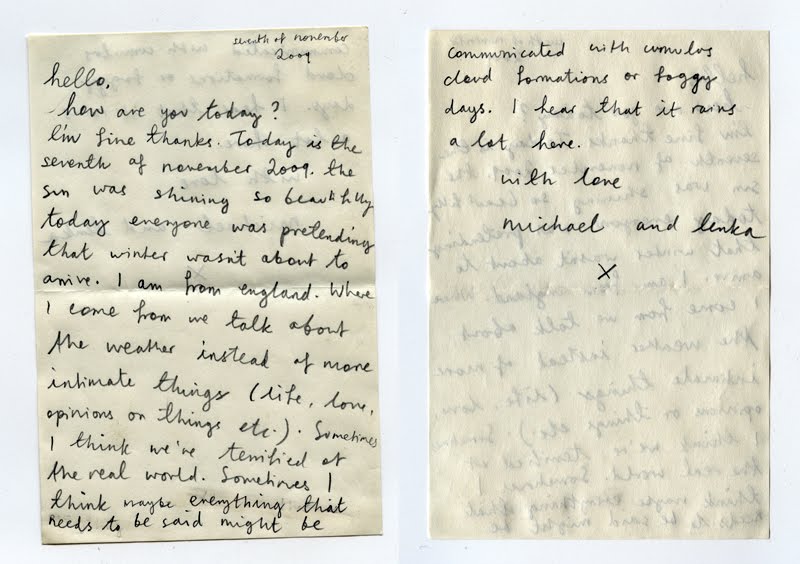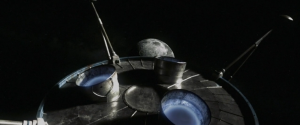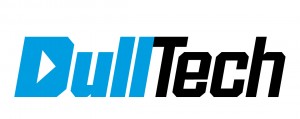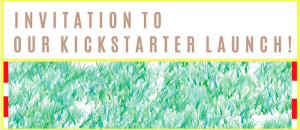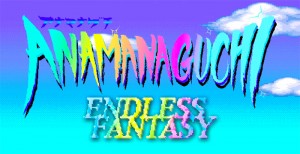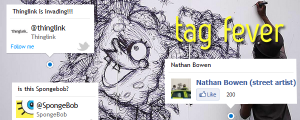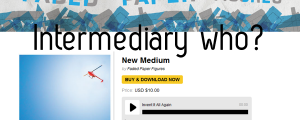Good ideas “if communicated well, can spread fast and wide”. Good projects if communicated through the correct platform will not only be funded but also generate a wide base of fans willing to virally & freely propagate the essence of the project grabbing at the same time the invaluable attention of the mainstream media.
This is what happened to Diaspora earlier on this year. A project begun by four students at NYU’s Courant Institute who were dreaming of an “open” Facebook alternative (when this one was involved in a big mess of privacy issues). They were hoping to get 10K to start coding their so called “privacy aware, personally controlled, do-it-all distributed open source social network”. In the end thanks to this massive media support (Techcrunch, NYTimes, BBC….) & the anti-fb momentum they managed to raise more than 200K.
Then it came The Pirate Bay documentary earlier this summer… and again, Simon Klose raised twice his set goal. And right now just after this post was published the “TikTok+LunaTik” iPod nano wrist band by Scott Wilson is about to reach a new record for KS…. more than $600k and still 10 days to go… not bad huh?
These are just 3 examples of the several hundreds of projects that a couple of years ago would had probably never found any support & even less monetary funds if it weren’t because of crowdfunding. Today there are all sorts of “social” on-line platforms that allow you to fund pretty much anything… from ONG’s projects, to new start-ups, businesses, album records & so on….
…for the creative bits we have Kickstarter, which we found about at the beginning of this year & we’ve haven’t stopped using to support those wet ideological dreams we found paranormally creative.
The NY-based start-up has helped funding the most bizarre, sometimes genuine, sometimes pointless & most-times amazingly original projects & forms of art expression; like for example building a temporary wedding chapel in Manhattan, converting an old bus into a mobile Thai restaurant, sailing around the world… tons of webcomics, 8-bit videogames, theatre shows, lock-picker kits, …. a long list of unimaginable ideas that showcase the creative spirit of the human being.
Today we’re welcoming co-founder Yancey Strickler who together with Perry Chen structured KS as a tool to fund “only” creative projects, something they defined & created on their own since meeting back in 2005. From the beginning they had this concept where they” wanted to have a very broad definition of creativity and wanted to approach each proposal that came to them with excitement & openness to see what anyone wants to achieve”. Quite an “empathic view of creativity” as Yancey puts himself.
aqnb: Hello Yancey, first of all thanks for dedicating us some of your time, let’s start with our impertinent questions…
to break the ice….those two crazy projects you still remember…?
YS: There are a lot that I like for various reasons, one in particular that I always enjoyed is called “Mysterious Letters”, it’s by two artists Michael & Lenka who came with the idea to try to write everyone in the world a personal letter, they started with a village in Ireland. It caused quite a stir because on the same day all 500 residents of the village received a letter from someone they didn’t know writing variously strange or kind things. Then they did a second project on KS to do the same for a neighbourhood in the US and the project was really great; great story, great idea & conceptual art piece with great rewards… one was for around $22 you could get a letter written to you by them while they were still sober, it would be very clear headed and then for a dollar more you could get one written while they were drunk, that they were sure they would regret.
Then, there was this other project which was more of a conditional one, two guys here in the US who had claimed to have invented the time machine that they wanted to mass produce. Their rewards included that they would take you to your funeral, or that you could give them something and they would take it back in time and get Beethoven to autograph it for you. Crazy stuff. It was a funny gesture that did not succeed for a good reason.
aqnb: what haven’t u seen yet? or what would u like to see get funded via KS?
YS: I can’t think of anything. The interesting bit is how Kickstarter has become known entirely through word of mouth. The projects that we’ve gotten have been completely organic. One day you get your first modern dance project and the next day you have ten because that community has become aware of Kickstarter as an option. We’re not in control of these things, how different communities come across KS. So while I don’t feel we’re lacking something now I’m sure in a week we’ll see something that will amaze us and become a big part of who we are.
the person: Yancey Strikler
aqnb: You’ve worked in Pitchfork, eMusic, Clear Channel….. what have you applied to Kickstarter, which of your know-how was crucial for the success of KS.
YS: One is that being in the music industry for so long I realized how few people actually get paid, and seeing such a need around money really opened my eyes.
When the music industry tends to talk about money and piracy they talk about it from the business perspective: record companies are in trouble, what are they gonna do, etc. The conversation is about it as a business problem, not an artist problem. We all know that artists aren’t well paid anyway, so everyone fast-forwards past that. There’s never any empathy for artists.
But I’ve been fortunate to work with quite a few young bands in the past, and I learned how those artists defined success. Is it by selling 10K records or anything like that? Not at all. Success to them was just making something that they felt proud of. This was the problem we were interested in confronting.
That initial act of creation is actually harder than people think. We see records, films, artists and we just think that they exist, that culture is ubiquitous. We never think about the process that went into making them, and yet that’s were the real need is!
You need the money to make the thing. Whether it sells or people pirate it afterwards is immaterial to actually making the thing that you feel proud of. When everyone else is thinking about the business issues about monetizing content, it’s mostly irrelevant to artists! For them the question is simple: “how do I get that initial money to make the thing?”
kickstarter related…
aqnb: Perry (Chen) comes to you one day & he presents you the idea… then KS sees daylight last year. How many revisions / business models or alternative ideas were there before the actual version of KS?
YS: The initial idea came about in 2002. Perry came up with this conditional funding concept: if a trigger is met then something happens, if it doesn’t nothing happens. We became friends in 2005 here in Brooklyn and he told me about the idea. The following year we were joined by our third founder, Charles Adler.
During that time in between when we first started working on it together and when it launched there were ups and downs but the original idea is pretty much exactly what it is today.
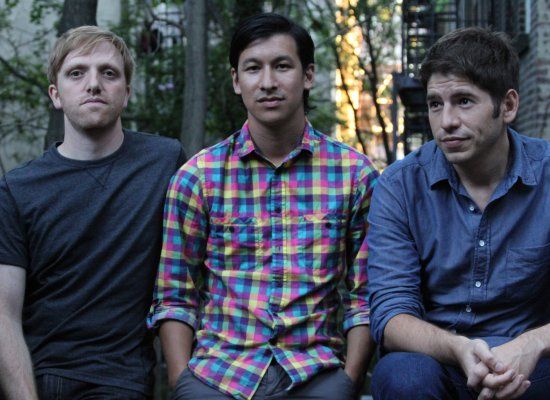
One question we always got was “What would you do if someone makes a huge blockbuster movie out of this? How will you get a cut?” But that was never our concern. We felt that if you are asking people to judge how successful something might become by offering equity/points then the whole relationship changes. People aren’t approaching the project on its own merits and whatever qualities it might possess. Profit potential and those kinds of concerns are irrelevant on Kickstarter. Instead people approach projects asking “do I like this,” “do I want this to exist in the world?” As simple as that.
aqnb: Sellaband kept 1/3 of the revenue from the sale of released albums but went bankrupt last February before being bought by German Investors. KS keeps 5% of the funds raised by each project although it doesn’t keep the property…. how are you doing in terms of keeping yourself on the crowdfunding game….?
YS: We’re on a good financial standing. And as far as this space, Kickstarter has more than 90% of the market easily. You put every other site together, multiply it by 10, and it still won’t match Kickstarter in number of funded projects, amount of money raised, number of backers, traffic, reach or any other important metric. There have been more than 10,000 projects overall, more than $25 million pledged, and more than 3,500 projects successfully funded. I personally have backed about 300 projects.
aqnb: You have a window of 90 days max to let any project be funded (many other platforms don’t)… you think the users would loose interest if there was no limit?.
YS: We always felt it would be key. A project needs to be finite. If you give people the opportunity to procrastinate they will.
We encourage people to choose shorter funding durations. We recommend 30 days as the optimal length. We do that because it has the best success rate on KS, and also because it compresses the amount of time for the process. The project launches, everyone gets excited about this new thing they can be a part of, it’s out there on the world for a couple of weeks, it gathers press and builds momentum, and during the final week it sees a huge burst of activity: people realize this is their last opportunity to become a part of it. This is the process for most projects.
While we do allow a 90 day duration, we definitely push people towards shorter time-frames. They’re more likely to have success. Momentum is more important than time: you want people to see how things are moving, to feel the progress. If there’s no time limit things stagnate and people will just stop paying attention.
aqnb: You receive around 300 projects/ week: that obviously poses a problem when trying to give visibility to all of them as only 10 are shown on the homepage (for about the same period of time), how are you dealing with this?
YS: We have an editorial team that looks at every project on the site every day, and we use the homepage and other spaces to showcase projects that use the system well. We’re still introducing the concept of Kickstarter to people so it’s very important what goes on the front page. Do they have a good video? Rewards? Are they appropriately priced? Is the story compelling? Do they use the platform in a creative way? These are among the things that we consider.
Obviously being on the homepage is great for getting attention and views. Millions of people come to KS every month. But it doesn’t necessarily mean money. Even for the projects on the homepage the bulk of their funding comes from their own outreach and the communities they come from.
aqnb: KS is a business. On the other side many of the projects financed via KS are under Creative Commons licence, or Open source…. etc. Does KS have a positioning regarding the distribution of the projects or the accessibility towards the cultural & creative goods?
YS: I very much believe it should be up to the artist. I’m very sympathetic to people who want to protect their work. Everyone should have the ability to take these decisions for themselves.
aqnb: We’ve observed that many of your projects get even funded within hours… are we all “Medicis” seekers looking for alternative things to spend our money on?
YS: I think that sometimes we are and we don’t know it. Over 300,000 people have backed a project on KS and over 30,000 of those people have backed more than 1 project. People who probably came to help a specific project they had a relationship with, and from there went on to uncover something else they liked.
Backers are a mix of normal, everyday people that want to be involved in something creative and doing it in a way that doesn’t require too much work on their part. People in general want to be generous and want to part of these creative experiences, so long as there’s an easy way to do it.
The ecosystem…
aqnb: IndieGoGo … they let you keep the money you’ve raised even if you don’t reach the goal…. but that doesn’t oblige the artist to commit in developing the project itself. Do you think their model could succeed?
YS: All or nothing is incredibly important to protect the integrity of both the project creator and their backers. For a creator, if you need $20,000 to execute this idea what are you supposed to do if you raise $1,000? What promises can you actually fulfil? It can put you in a worse position than not having received any funds at all. And as for the backers, you want to know that the money you’re giving is going to a fully funded project. You never want to be the only person who chose to back someone in that kind of system.
TikTok has raised more than $0.6 million, latest success for KS
At first glance that kind of model may sound attractive to someone nervous about the finality of all-or-nothing. But the numbers prove that Kickstarter’s model generates exponentially more money and success. In 18 months we’ve had more than 4,000 successfully funded projects. They’ve had something like 200 in twice that amount of time.
People can claim to be whatever they want, but in the end you have to look at what someone is able to actually execute. There’s a lot of misinformation out there. We make a concerted effort to be transparent with our numbers. Kickstarter was not the first crowdfunding platform by any means, but there’s no question about its growth or success. Even the sheer number of Kickstarter copycats out there — every site mysteriously looks like ours — confirms it.
aqnb: You claim to be largest funding platform for creative projects in the world but pretty much most of the projects are only American as you need to have a US bank account… for when KS in the rest of the world?
YS: We’re working on it, it will happen at some point. The Amazon issue is not one we can control. The important thing to remember is that people can back projects from anywhere.
It’s incredible that there’s so much interest in us expanding. When we first launched in April 09 we honestly didn’t know if anyone would use it. We’re actively working on expanding. I don’t have a timeline but it’s one of our priorities.
aqnb: What’s the evolution of KS? Is there something else beyond crowdfunding? new features?
YS: We’re very committed to the creative space. The concept of what Kickstarter is constantly evolving but the spirit of it has never changed and I don’t expect it to.
In terms of features, we’ve got a room full of creative people here, 14 of us constantly coming up with ideas. It’s just a matter figuring out which ones get done when.
aqnb: Internet is said to be democratizing the world (users impose their will over corporations or individuals), could you say KS is helping somehow within the “creative” part of it?
YS: I hope so. Even stepping back just one more bit… It’s not easy to pursue a creative project. We all come up with ideas all the time that we never pursue. Not enough time, not enough money, not enough of an audience to push us forward. We’d love for Kickstarter to be a place where people can explore their creative passions rather than abandoning them.
aqnb: thanks again Yancey

